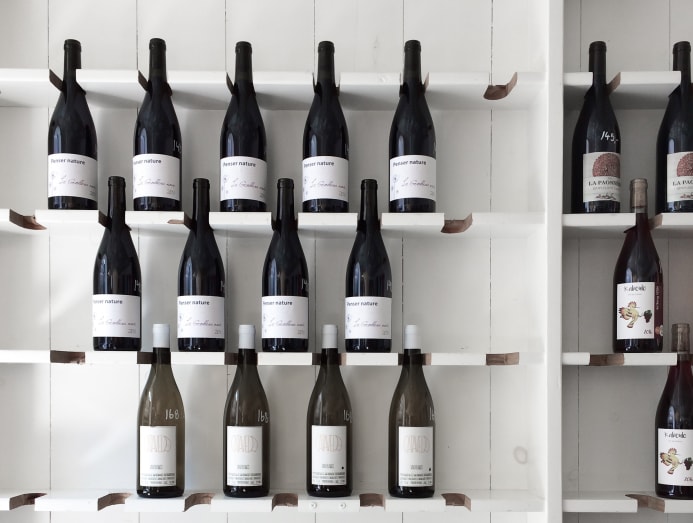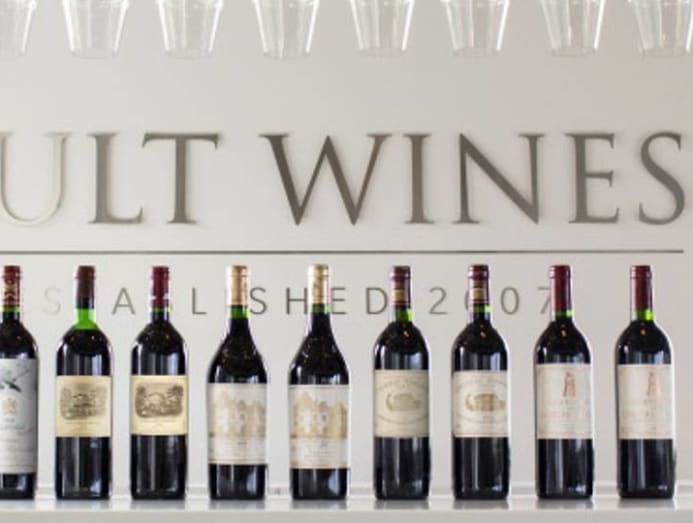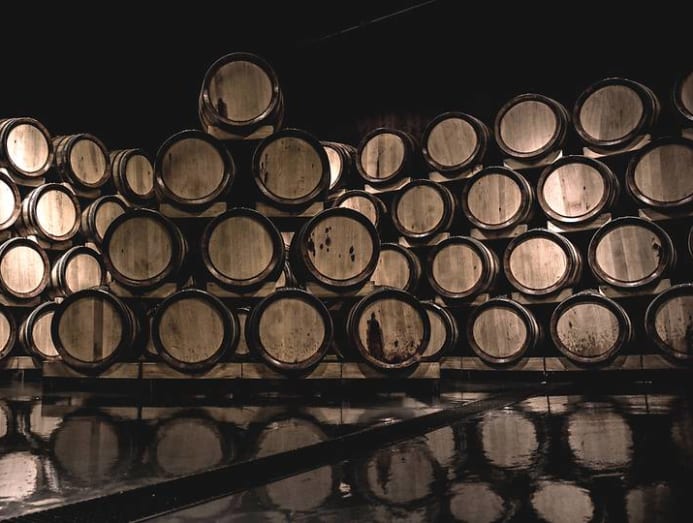Wine investment: What to look out for and how much you'd need to start
More Singapore investors are putting their money in wines. But before you take the plunge, there are some wine investment fundamentals to be aware of.

(Photo: Kym Ellis / Unsplash)
From the scores of wine retailers that exist online and offline to the numerous wine appreciation workshops and masterclasses, and the multitude of blind tastings and wine weekend events, it’s clear that Singaporeans’ thirst for wines is growing.
But there’s another side of wine that novices and casual drinkers might be oblivious to: Wine investment.
Since establishing their headquarters in Singapore in 2014, wine merchant and luxury lifestyle service provider Sarment has seen an increasing number of local clients investing in wines. “Our clients understand that financial returns are generally quite stable right now and wine investments give greater returns," said Julien Drevon, general manager of Sarment South East Asia.

"Passion investments like wine complement their lifestyle, and unlike stocks, wine is something tangible that you can actually enjoy if you want."
UK-based wine investment firm Cult Wines opened an office here in October to cater to this niche but growing market.

Said Cult Wines’ SEA (Southeast Asia) Associate Sales Director Nicolas Laurent: “Most of our wine investors usually have no knowledge about wines. They came to us because they heard that wine is a safe alternative investment producing good returns. But [later], they were happy to learn about the wines on their journey. We organise visits to the vineyards, masterclasses, wine dinners with producers and winemakers, critics, and Masters Of Wines certification.”
READ> Meeting an important client for dinner? Here’s how to choose the right wine
HOW TO START INVESTING IN WINE
There are a couple of ways to invest in wine. The first option involves purchasing and reselling individual bottles or cases of particular wines.
The second is to purchase shares in a fund that specialises in wine investments – like a mutual fund, except with a portfolio of wine bottles. The type of portfolio you have depends on your capital budget, investment level, investment term, and risk appetite.

This is where firms like Cult Wines comes in. The firm’s portfolio management service is intended to be a leg-up compared to the services offered by wine merchants and distributors here, which may provide varying degrees of investment advice.
While there is no minimum investment capital to use its services, Cult Wines advises clients to start with at least £10,000 (S$17,500) and top up whenever they want to add to their portfolio. “Ideally, £50,000 gives one access to 30 to 40 lines in your portfolio to offer diversity,” said Laurent.
He explained: “We buy, hold, and then sell after one to three years. If, at any point, you need your cash back, we can liquidate a portfolio of £50,000 in six to eight weeks. Since we started to track our performance in 2009, we have returned an average of 13.9 per cent annually.”

Like financial fund managers, advisers at Cult Wines examine their clients’ portfolios on a daily basis to take advantage of any sudden and short-term trends.
For example, the Chateau Margaux 2015 was one of the best vintages the estate ever produced, and was the last vintage under the auspices of the late Paul Pontellier, the estate’s longtime managing director.
Since we started to track our performance in 2009, we have returned an average of 13.9 per cent annually.
The wines were first put on the market in May 2016 and the Chateau announced they were going to release a special edition of the wine, one with a black glass bottle and silver engraving. “Before they announced that, the wine was trading for £4,500 for a case of 12. Then, in a span of four weeks, it went up to £13,000. When it reached £11,000, we advised our investors to sell and reallocate the profit to reinvest in something else,” Laurent shared.
As with any investment, there are risks and pitfalls involved. Laurent shares a few tips to take note of when dipping your toes into wine investment.

1. THINK WITH YOUR LEFT BRAIN
Be ready to invest in wines that might not suit your tastes. The types or brands of wines that you like may not always be the ones that provide the best returns. Bear in mind that you are buying wines to invest, not necessarily to consume.
2. ENSURE THAT YOU’RE THE RIGHTFUL OWNER
Always make sure that you are the sole legal owner of the underlying asset. In the event of, say, the closure of your wine-investing firm; having ownership of the wines means you can continue to broker them.
3. BE AWARE OF WINE’S LIQUIDITY AND VALUATION
As an investment, wine is not as liquid as the stock market, but is definitely more liquid than real estate and alternative assets like fine art. Check with your portfolio manager how quickly you can exit your investment. Keep abreast of your wines’ valuation by following the London International Vintners Exchange (Liv-Ex).

4. DIVERSIFY
A diverse wine portfolio spreads risk and can also maximise returns. Complement blue chip wines like Bordeaux First Growths Chateaux Lafite Rothschild, Mouton Rothschild, Petrus, and Haut Brion with emerging stars from Burgundy, or perhaps, even estates in Italy and California.
5. IMMERSE YOURSELF IN THE WORLD OF WINE
While you do not need extensive wine knowledge to start investing in wine, it is beneficial to learn more about it. Subscribe to fine wine merchants’ newsletters, follow wine critics, take educational wine courses like the Wine And Spirit Education Trust or WSET, and, if all else fails, simply find a nice wine bar where you can appreciate and discuss wine with like-minded individuals.





